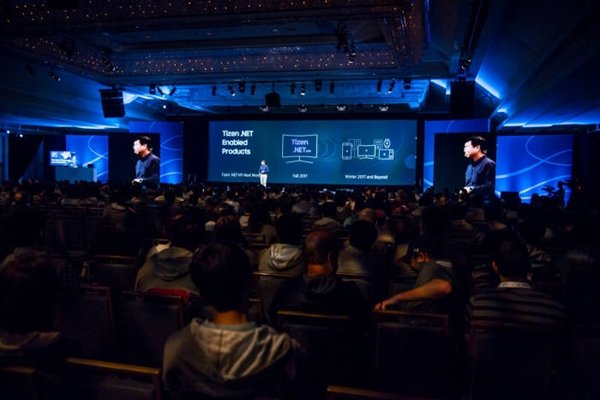Tizen is set to emerge as an operating system (OS) for home automation. Not only is Samsung Electronics is participating in developing devices with Tizen as their OS, small and medium companies and foreign companies are also developing devices with Tizen as their OS as well. As Tizen is applied to sensors of devices besides Smartphones and Smart Home Appliances, it is likely that this will accelerate in expanding ecosystem of Tizen.
According to industries on the 29th, Commax is planning to develop home automation devices such as security devices such as CCTV and door lock and wallpad that utilize Tizen. These devices will be based on embedded-type devices that are actually applied with Tizen instead of showing Tizen UI (User Interface) through a screen. Commax is going to work and share API (Application Programming Interface) with Samsung Electronics and is going to develop products that are compatible with other devices. Its strategy is to utilize Tizen as a platform for home IoT (Internet of Things).
If Tizen is applied to home automation devices from Commax, there is a higher chance that they will be linked to other Smart Home Appliances. It will be possible to control Smart TVs and refrigerators through wallpads, CCTVs, and sensors from door locks. “There is a way now to apply Tizen to entire home IoT.” said a representative for an industry. “It will be established as a new platform.”

Changes in communication methods for IoT are also expected. Home IoT manufacturers such as Commax usually use Zigbee or Z-wave as a communication method between devices. It seems that devices that are applied with Tizen will be applied with new M2M communication technology such as AllSeen that is used by OCF (Open Connectivity Foundation).
It is also expected that application of Tizen will expand in foreign countries as well. Samsung Electronics and Commax have decided to work with Chinese chipset manufacturer called Broadlink. It seems that Tizen OS will be applied to switches, Smart Plugs, and comprehensive remote controllers.
Samsung Electronics’ strategy to increase number of devices that are applied with Tizen is effective in expanding an ecosystem for Tizen. Initially Tizen was only applied to Smartphones, Smart TVs, and Smart Watches. However now it is possible to apply Tizen to devices with low specifications such as boilers, scales, and light bulbs as new operating systems such as Tizen for IoT and embedded Tizen are introduced. Now Tizen can be applied to most of IT devices.
Although expansion of Tizen is started off in markets for home IoT, increase in market shares is still remained as a homework. While it seems that markets will start to expand as Tizen is applied to many devices, its influence is still insignificant. According to industries such as market research companies, market share of Tizen is still not even 1%.
“Many companies need to participate in an ecosystem related to Tizen in order to expand applications of Tizen.” said a representative for an industry. “It is necessary to secure variety of cooperative ecosystems as number of players increases by providing platforms.”
Staff Reporter Kwon, Dongjoon | djkwon@etnews.com